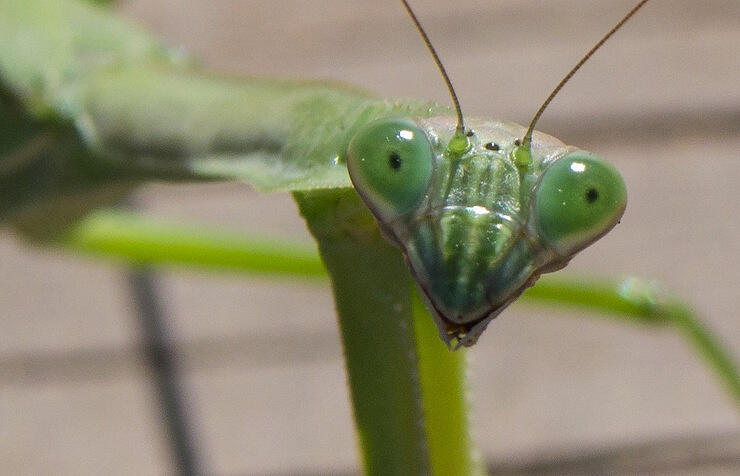Researchers from Tyumen State University (TyumSU) and the University of M·nster during the international research project SASCHA discovered that as a result of climate change in Siberia, some southern species of arthropods including mantises have been found in the Tyumen region, to the north of their usual inhabitation areas, reported Igor Kuzmin, professor from the Department of Biology, Institute of Mathematics, Natural and Computer Sciences at TyumSU.
“Due to climate change, steppe invertebrates started moving to the north of the Trans-Urals. That includes mantises, a species that has never been seen in Tyumen region before,” Kuzmin said.
According to the researchers’ report, the majority of southern insects was found in areas changed by human activity, such as fields, gardens, centers of cities and even apartments. Scientists suppose that it might have been caused either by the lack of untouched nature in the Tyumen region, or by the fact that the areas changed by human activity are less inhabited and therefore pose less competition for the southern insects. Scientists predict a further invasion of the north by the southern species.
Scientists believe that the main reason for the expansion of the southern species habitat is global warming which makes northern areas more suitable for the thermophilic species.
The SASCHA (Sustainable land management and adaptation strategies in response to the climate change of the Western Siberian Grain Belt) project is a large joint Russian-German research venture, carried out over the 2012-2016 period. The Russian side was represented by the TyumSU where the International Integrated Research Laboratory dealing with climate, land-tenure, and biodiversity was established. During the project, the Tyumen region’s fertile land was studied and various zoological and botanical research activities were conducted.
Source: TASS











